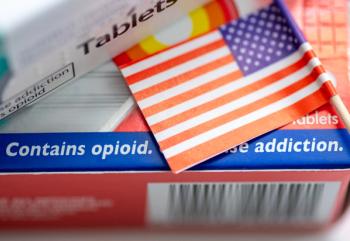
- Drug Topics January 2019
- Volume 163
- Issue 1
Opinion: A New Toolkit to Fight Opioid Abuse
What one pharmacist says the AAOA Pharmacy Toolkit can do to help combat the opioid epidemic.
As the country grapples with the opioid abuse epidemic, communities are working together to have conversations, engage with partners and develop solutions to prevent the improper use of these medicines. Prescription opioid abuse and misuse is a serious and sensitive topic because misuse of these medicines often starts in the home. Patients and their caregivers need to be able to turn to a trusted and accessible healthcare provider. Often, that person is their local pharmacist.
Pharmacists play a crucial role in educating patients about the potential risks and side effects of the medicine every time they pick up or refill a prescription. By having these important conversations, pharmacists can ensure that their patients who are prescribed an opioid understand the serious risks associated with these medicines, which include dependence, addiction, or overdose, especially with prolonged use.
Pharmacists also have the opportunity to remind patients of the steps they can take to ensure opioids do not end up in the wrong hands. These include knowing how to safely use and securely store opioid pain medications when they are prescribed and how to promptly dispose of any unused or expired pills.
Right now, there is a persistent and growing gap in education and awareness on the proactive steps that can be taken to mitigate the risk of misuse before it occurs. A poll conducted by Morning Consult in 2018 underscored the lack of awareness among consumers about prescription opioid safety and highlighted the need for more focused education around safe use, storage, and disposal of these pain medications.
For instance, 36% of respondents said they did not know they needed to dispose of leftover prescription opioids, and nearly 30% said they did not know how to do so safely. However, nearly 70% said that, with detailed instructions, they would be more likely to securely store and properly dispose of prescription opioids.
Allied Against Opioid Abuse (AAOA), a national initiative to help prevent prescription opioid abuse and misuse through education, has joined efforts to raise awareness about the rights, risks, and responsibilities associated with prescription opioids. AAOA has convened national and local partners from across the pharmaceutical supply chain, public health, and healthcare to work together to educate patients and their families about opioid safety prevention methods, including the safe use, storage, and disposal of these pain medicines.
Our organizations worked with AAOA to engage and mobilize the pharmacy community in patient education efforts around prescription opioid safety. Together with state pharmacy associations in Connecticut, Florida, Minnesota, Ohio, Pennsylvania, and Tennessee, we developed a pharmacy toolkit to equip the pharmacy community with resources to help prevent and reduce instances of prescription opioid abuse and misuse in the communities that they serve.
The AAOA Pharmacy Toolkit provides educational materials to help pharmacists engage in conversations with their patients and healthcare provider colleagues about prescription opioids and how to prevent abuse of these pain medications. Key components of this educational effort encourage pharmacists to talk to their patients about the potential side effects and risks associated with opioid medications; safe use and taking the medication only as prescribed; alternative pain treatments and other ways to manage pain; and proper storage and the prompt disposal of unused pills.
We believe that increasing public education and awareness of prescription opioid safety is an important step to reversing the trend of misuse and abuse in communities nationwide.
By arming pharmacists and pharmacy staff with resources and materials that focus on the rights, risks, and responsibilities associated with prescription medicines, they will be able to provide pain-management guidance to patients with legitimate needs for opioids and help to minimize instances of misuse of these medicines in the home.
Articles in this issue
about 7 years ago
How Blockchain Can Reduce Waste, Fraud in Pharmacyabout 7 years ago
A Pharmacist's New Year's Resolutionsabout 7 years ago
Duvelisib for Relapsed or Refractory CLL/SLLabout 7 years ago
10 Pharmacists to Follow on Twitterabout 7 years ago
Small Doses: January Newsabout 7 years ago
The 10 Most Exciting Drugs in the 2019 Pipelineabout 7 years ago
Pharmacist-Driven Intervention Program Reduces Readmissionsabout 7 years ago
Chronic Kidney Disease Patients Need Advice On Diet, Drug Buildupabout 7 years ago
Independent Pharmacies: Not Dead Yetabout 7 years ago
5 New Pharmacy Rules and Regulations to WatchNewsletter
Pharmacy practice is always changing. Stay ahead of the curve with the Drug Topics newsletter and get the latest drug information, industry trends, and patient care tips.























